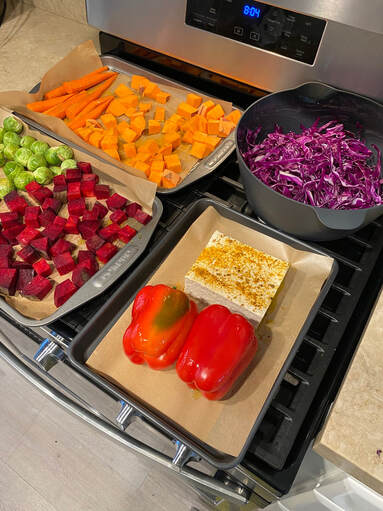|
Michelle MacDonald, a clinical nutritionist at National Jewish Health, in an NTM Info & Research podcast series, presented on how food can impact bronchiectasis and NTM lung disease. Some suggestions are below (in a nutshell!). Recordings are available at NTMinfo.org.
• Eat with purpose and determination. Food is therapy to fight infection. You need the calories to strengthen the immune system and speed recovery. • Eat high-calorie, high protein, nutrient-dense foods. • Schedule your meals. Do not skip meals. Eat breakfast. Snack a couple of times a day. • If MAC is draining you, then eating well helps you fight your infection. It can help you restore yourself. • There is no single predictor of who will have disease progression, however, low body mass index (based on height and weight-BMI less than 18.5) is linked to a poorer outcome. We are not sure how sickness and being underweight are linked but, know that they are. Women like being on the thinner side. But MacDonald reminds women that they will be stronger if they are a normal weight or have a few extra pounds on them. Don’t diet if you are fighting infection and/or be sure your diet is carefully monitored. • Dairy does not necessarily increase mucus production based on the studies. However, you need to evaluate how dairy impacts your congestion on an individual basis. • Often loss of appetite is because of infection. Appetite loss might mean you need to eat more. Fever also increases metabolism and burns calories. • Vitamin D deficiency (a 30-50 level is considered good at NJH) means your body is fighting infection and using up micronutrients. This lowers your immunity. • Fat is more caloric and very healthy. Even if you have a history of heart disease. It can be a concentrated way to get the calories and nutrition you need. • Add and/or concentrate calories in each meal. Increase 250-500 calories per day. This way you will gain about a pound a week. You may need up to 2500 daily calories to reach this goal. • There is a higher need for protein with an active infection. MacDonald recommends a 4 ounce portion chicken, fish or meat. Size-wise it is bigger than a deck of cards. Some data shows that 30 grams of protein at each meal may increase muscle mass. • Sugar/desserts okay but should not be a substitute for more nutritious eating. • Take a multi-vitamin, iron-free. Some concern, that supplements with iron might promote growth of bugs. This is especially true if you are post-menopausal. Choose a 3rd party certified supplement (these companies audit supplements to see if they are high quality). Avoid megadoses of minerals and vitamins. Data shows that they could be more harmful than helpful. • Food supplements can be a good idea. Especially if you eat mainly vegan or vegetarian. • Reflux is correlated with NTM and bronchiectasis Reflux precautions: •Sleep on left side • Elevate head of bed 30-40 degrees • Do not eat within 3 hours of sleeping • Know what your triggers are and avoid or minimize • Eat small frequent meals You are in charge!!! #bronchiectasis #ntmlungdisease #maclunginfection #nutrition
0 Comments
Your comment will be posted after it is approved.
Leave a Reply. |
AuthorLinda Cooper Esposito, MPH is a health educator with bronchiectasis. She developed the BE CLEAR Method to Living with Bronchiectasis and writes with compassion and humor about this chronic lung disease. Archives
July 2024
Categories |


 RSS Feed
RSS Feed